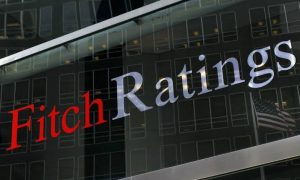Onome Amuge
The stage is set for a challenging year ahead for African banks, as Fitch Ratings has issued a challenging financial outlook for the banking sector in its African Banks Outlook 2025 report.
Fitch highlighted the vulnerability of African banks to both domestic and global economic conditions, suggesting that although many countries display solid resilience, a potential decrease in commodity prices could pose challenges for the banking sector.
However, the rating agency also pointed out that reduced interest rates are expected to drive demand for credit, which, in combination with more stable exchange rates, may support investor confidence and encourage increased investment activity.
As highlighted by Fitch, African banks will continue to struggle with risks to their asset quality, stemming from the impact of high inflation and interest rates on households and businesses. These effects are expected to place pressure on the banks’ impaired loan ratios.
Nevertheless, Fitch predicts that a small reduction in these ratios may occur, driven by the expected growth in lending, declining interest rates, and a moderation of inflationary pressures.
Despite the daunting challenges ahead, the agency forecasts that the majority of African banks will be equipped with the financial resilience to navigate potential asset quality risks. This resilience, it explained, will be driven by the banks’ strong pre-impairment profits—bolstered by high interest rates, satisfactory loan growth, robust non-interest income, notably trading gains, and impressive operating efficiency.
While Fitch anticipates that performance will likely decline in certain countries where lower interest rates may diminish yields on government securities, the overall outlook for the sector remains solid.
According to Fitch, a significant threat to African banks’ profiles is the ongoing sovereign debt distress afflicting many countries in the region. With an average sovereign rating of ‘B,’ contagion risks to African banks are considered substantial, particularly given the high debt-servicing burdens facing several sovereigns.
On a more positive note, Fitch believes that President Bola Tinubu’s administration’s commitment to orthodox economic policies has improved Nigeria’s credit profile prospects.
However, the rating agency has also identified challenges to Nigeria’s economic recovery, such as inconsistent or poorly communicated policy implementation, which has hindered investors’ confidence in the country.
The report noted further that despite the implementation of various reforms in the Nigerian foreign exchange market, such as the recent introduction of an electronic matching platform for all foreign exchange transactions, the country’s FX policy still suffers from a lack of transparency in several key areas, including the true level of net reserves.
Fitch identified a widening gap between the official and parallel market rates in recent months, indicating a slower pace of progress on reforms and lingering strains in the foreign exchange market. Furthermore, the agency noted that Nigeria’s fiscal policy remains uncertain, with the government’s 2025-2027 Medium-Term Expenditure Framework (MTEF) setting ambitious targets for reducing the budget deficit.
However, the assumptions underpinning the MTEF, such as oil prices and production levels ($75 per barrel and 2.06 million barrels per day, including condensates), are more optimistic than Fitch Ratings’ projections ($70/bbl and 1.77 mbpd, respectively), adding to the uncertainty surrounding the country’s fiscal sustainability and economic trajectory.
“The authorities have increased efforts to raise non-oil revenues even as oil-related revenues appear likely to fall short, but there is already a risk that they could face political challenges implementing their plans to raise the VAT rate to 10 per cent in 2025 from 7.5 percent currently,” Fitch stated.
According to Fitch, the ability to raise fiscal revenues, particularly non-oil revenues, is a critical aspect of Nigeria’s reform agenda and an essential factor in the country’s credit profile.
Despite the recent hike in the value-added tax rate, Fitch anticipates that Nigeria’s general government revenue as a percentage of gross domestic product will remain lower at around 10.3 percent in 2024-2025 than the median of 19 percent for countries in the ‘B’ category.









